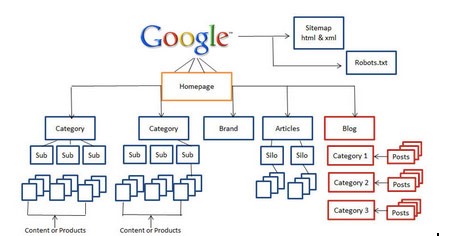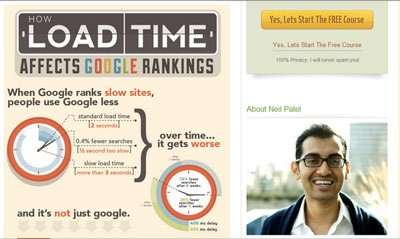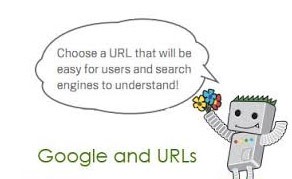- SEO
- 11.16.2015
Web development SEO foundations
Search Engine Optimization. Perhaps one of the most widely utilized, and misunderstood, online marketing tactics currently in use, SEO represents a modern marketing perspective that favors user behavior over marketer influence. In other words, SEO considers the behavior of a user and attempts to engage based on that, rather than influence their decision prior to engagement. And it’s seen a lot of success; it’s estimated that SEO leads have a 14.6% close rate, while outbound leads (such as direct mail or print advertising) have a 1.7% close rate, a stat that is undoubtedly hard to ignore. So, what does that mean for you as a web developer? You may have thought that SEO is not the concern of the developer, that it’s a marketing person’s job to come in and optimize the site you’ve developed after the fact. But this perspective is plainly wrong. Believe it or not, SEO encapsulates the entire web design and development process, from start to finish. If you’re a developer, and you aren’t sure of all the places that SEO fits into your development process, we’ve got the blog post just for you:

Things to consider:
Remember, SEO is about optimizing your site for Search Engines, not for people. After all, a user is most likely to find you via a search engine query, so you’ve got make sure that the architecture of your site is ‘crawlable,’ that is, readable from the perspective of a Search Engine bot. That means a carefully thought out link structure and indexable content.
A crawlable link structure is necessary for a search engine to properly locate and crawl all the pages on your site. Many sites run into trouble by not properly displaying links, or just not displaying them at all, which means those pages don’t exist as far as a Search Engine bot is concerned. By far, the easiest way to ensure that your content, links or otherwise, will crawled and indexed by bots is to display it in HTML text right on the page. Despite frequent advances in Search Engine technology, Javascript applets, Flash files, images, and many other non-text forms of content are not crawled without accompanying HTML text.

Website Speed Load Time
Believe it or not, usability features are huge ranking factors for SEO, and page load time is perhaps the most crucial of those features. It’s nothing new; google has included page load time as a ranking factor since around 2010 and it really shouldn’t irk you all that much. After all, page load time is important from a user’s standpoint as well. Would the experience of a site be enjoyable for you if the page took ten seconds to load? It’s unlikely. Remember: a site’s page load time should be under three seconds. Most people leave a site if it doesn't load within five. A couple of tips to quickly get your site up to speed including compressing script and files, and leveraging browser caching, among many others.

Website URLS
Yes, it’s true. Your website’s URL matters for both SEO and usability. First and foremost, the URL’s present on your site should be relevant to their specific landing pages. If a typical user can easily guess at the content that they’ll find based on a URL, then it’s properly descriptive Additionally, it’s important that each URL is NOT overly optimized with keywords. Keywords are important, and should be included in your URL, but too many could trigger spam filters and thus render that page invisible.
For local businesses, it’s an SEO ‘best-practice’ to include the city name in URL’s and then have those URL’s link to landing pages with services for that area. That way, if a user searches for a service you provide for a given area that you work in, your site will show up.
Last but not least, it’s best to use dashes (-) to separate words. CamelCase does not work, nor do underscores, or simply combining words. In these cases, google understands the URL as one word that isn’t separated, which can hurt your ranking. Seattle-seo is correct, Seattleseo and Seattle_seo are not.

Usability
To be sure, Usability and User Experience are second tier influences on your sites rankings, but they’re still hugely important (link). Overall, your site needs to be User-Friendly. What’s that mean? It means that your site is navigable such that a user can easily find their way through your site on their own; one part of the site easily leads to the next. If a user can intuitively navigate your site, a search engine bot should have no problem.
In terms of User Experience, it’s best to try and craft a site that’s empathetic to the user, that is, a site that will provide them with whatever they’re looking to find. Content and information should be relevant to a User’s concerns. This way, your site will be positively perceived, which encourages sharing, bookmarking, return visits, and inbound links, all of which signify to a search engine the relevance of your site, which ups your ranking.

Cross device compatibility
This year google announced that mobile searches had finally surpassed desktop searches, which means that ignoring mobile users is definitely not an empathetic approach and is akin to shooting yourself in the foot. Bottom line, your site needs to account for mobile, and you’ve got two options, responsive and mobile. A responsive site means that your site’s dimensions respond to the screen size on which they are displayed, allowing anyone on any device to see your site. A mobile site is a duplicate site with an m.url. If you choose to create an additional mobile site, make sure it's redirected through the original URL or else your rankings will take a hit.
Schema Markup
Schema tags are a huge factor for SEO nowadays. So much so that it’s a bit too much to unpack here, but if you’re interested in the ways you can use schema tags to benefit your rankings, check our blog on the subject.
There’s no doubt surrounding the importance of SEO for internet marketing. What is still in question for many is how SEO permeates all aspects of crafting an online presence, from marketing to Web Dev and beyond. As you can see, SEO considerations have to be made every step of the way. Otherwise you're missing out on ranking opportunities which means you're missing out on leads. If you’re interested in the ways in which Bonsai can help make your site more SEO friendly, or any of our other services, feel free to check out our services page.